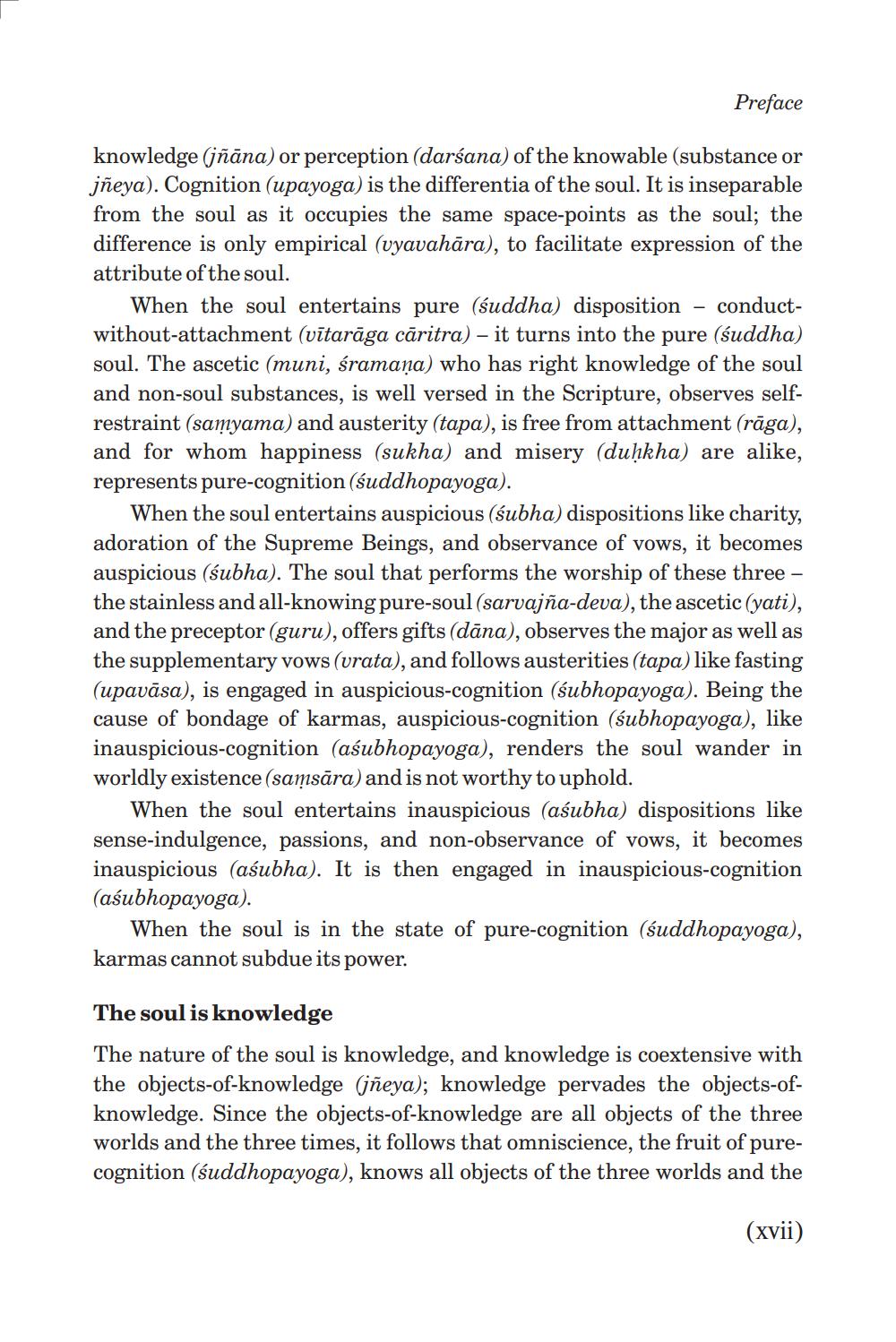________________
Preface
knowledge (jñāna) or perception (darśana) of the knowable (substance or jñeya). Cognition (upayoga) is the differentia of the soul. It is inseparable from the soul as it occupies the same space-points as the soul; the difference is only empirical (vyavahāra), to facilitate expression of the attribute of the soul.
When the soul entertains pure (suddha) disposition conductwithout-attachment (vītarāga căritra) – it turns into the pure (suddha) soul. The ascetic (muni, śramana) who has right knowledge of the soul and non-soul substances, is well versed in the Scripture, observes selfrestraint (samyama) and austerity (tapa), is free from attachment (rāga), and for whom happiness (sukha) and misery (duḥkha) are alike, represents pure-cognition (suddhopayoga).
-
When the soul entertains auspicious (subha) dispositions like charity, adoration of the Supreme Beings, and observance of vows, it becomes auspicious (subha). The soul that performs the worship of these three - the stainless and all-knowing pure-soul (sarvajña-deva), the ascetic (yati), and the preceptor (guru), offers gifts (dāna), observes the major as well as the supplementary vows (vrata), and follows austerities (tapa) like fasting (upavāsa), is engaged in auspicious-cognition (subhopayoga). Being the cause of bondage of karmas, auspicious-cognition (subhopayoga), like inauspicious-cognition (aśubhopayoga), renders the soul wander in worldly existence (samsara) and is not worthy to uphold.
When the soul entertains inauspicious (asubha) dispositions like sense-indulgence, passions, and non-observance of vows, it becomes inauspicious (asubha). It is then engaged in inauspicious-cognition (aśubhopayoga).
When the soul is in the state of pure-cognition (suddhopayoga), karmas cannot subdue its power.
The soul is knowledge
The nature of the soul is knowledge, and knowledge is coextensive with the objects-of-knowledge (jñeya); knowledge pervades the objects-ofknowledge. Since the objects-of-knowledge are all objects of the three worlds and the three times, it follows that omniscience, the fruit of purecognition (śuddhopayoga), knows all objects of the three worlds and the
(xvii)




